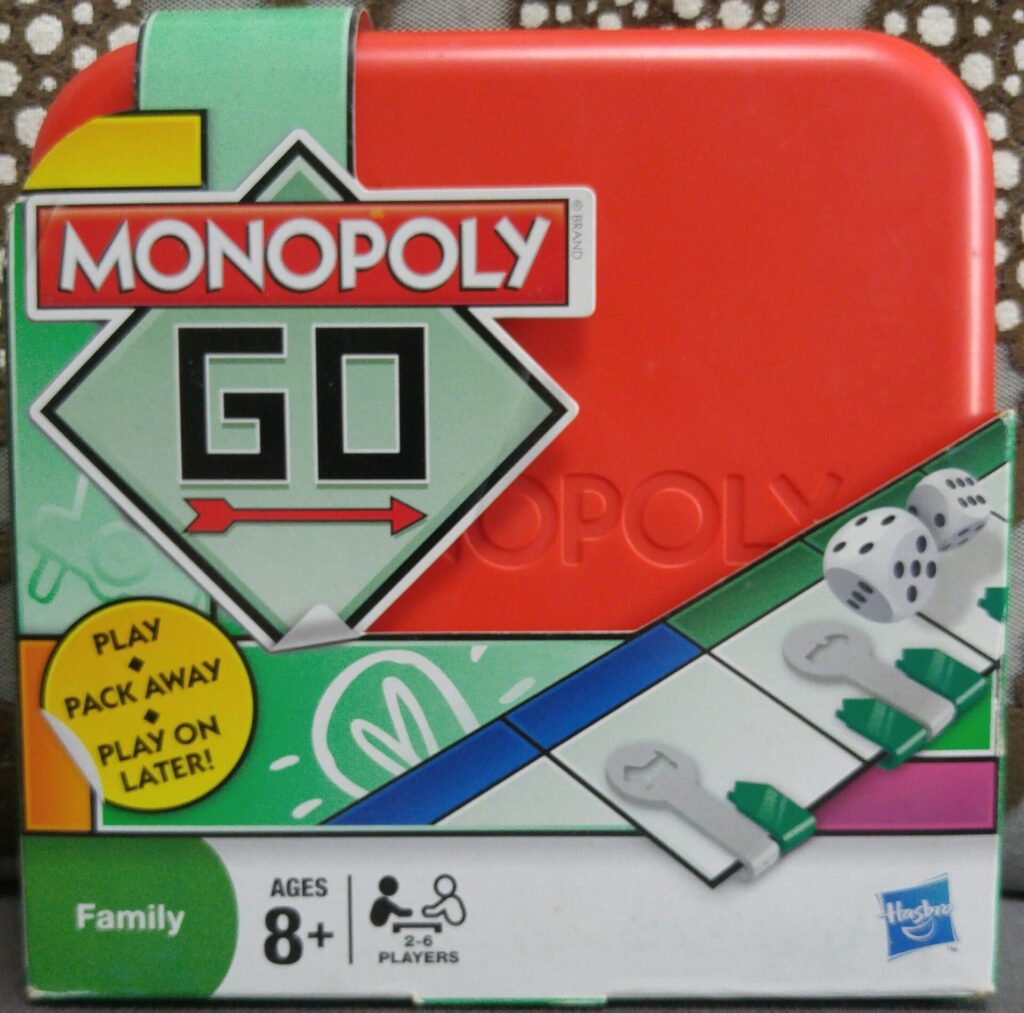How To Play: Monopoly: Go – Setup, rule summary and strategy
In this strategy guide for Monopoly: Go, we explored essential tactics to enhance your playing skills, covering rules, property acquisition, money management, and trade negotiations. Through these tips, new players can navigate the game confidently and increase their chances of victory.

Overview
Welcome to ‘How To Play Monopoly: Go’, the quintessential strategy guide designed to elevate your game. Even if you’ve passed GO countless times, this guide offers fresh, authoritative insights. Beginning with an outline of the game rules, we’ll venture into the nuances of winning strategies. Whether you’re a newcomer or a seasoned player, buckle up—a masterclass in property acquisition, financial cunning, and shrewd negotiations awaits!
What’s in the box
- 1 Game board
- 8 Tokens
- 28 Title Deed cards
- 16 Chance cards
- 16 Community Chest cards
- 12 Hotels
- 2 Dice
- 1 Pack of Monopoly money
- 32 Houses
How To Play Monopoly: Go: Rules Summary
Initial Game Setup
- Unfold the board and place it in the center of play area.
- Distribute equal amounts of money to all players based on the game’s starting currency.
- Each player selects a pawn and places it on ‘Go’.
- Shuffle Chance and Community Chest cards and place them on their allocated spaces on the board.
General Gameplay
- Players roll two dice to move around the board with the aim of purchasing properties players land on.
- If a property that a player lands on is not owned, they may buy it; otherwise, they must pay rent to the owner.
- Building houses and hotels increases rent, which escalates the property values.
- Players must choose when to invest and when to keep cash on hand for rent and other fees.
Winning the Game
- The last player remaining with any money when all other players have gone bankrupt wins the game.
Special Rules & Conditions
- Landing on ‘Go’ gives the player a bonus.
- If three doubles are rolled in a turn, the player goes to jail.
- Properties can be developed with houses and hotels after owning a complete set.
- Cards like Chance and Community Chest can provide cash, assets, or other penalties at random.
- ‘Free Parking’ is a safe space where no actions occur.
Best Monopoly Go Strategies
The Master Tactician’s Roadmap to Property Dominance
Early Game Aggressiveness
Start your game with a bang! Initially, buy as many properties as you can. Naturally, the early stages are about expansion.
Monopolize Wisely
- Identify the color groups that offer the best return on investment.
- Target acquiring complete sets; monopolies allow construction, which increases rent dramatically.
- Don’t overextend; keep reserves for development and unforeseen expenses.
Strategic Long-Term Planning
Beyond the early rush, think ahead. Indeed, positioning for late-game dominance is vital:
- Retain liquidity to capitalize on auction opportunities.
- Understand the most landed on properties through statistical advantage.
Mastering Wealth in Monopoly: Go
Strategic Saving
Cautiously amass your cash reserves. Initially, saving more than spending ensures you have funds for critical auctions later on.
Insightful Investing
Next, allocate your funds smartly. Acquiring utility and railroad properties offers steady income—prioritize them.
Surgical Spending
- Bid conservatively for properties that complement your existing portfolio.
- Avoid splurging on hotels unless you have a property monopoly.
- Lastly, precisely plan upgrades, investing in houses when turnover is likeliest.
The Art of Negotiating in Monopoly: Go
Negotiating is crucial in Monopoly: Go. It’s not just what you trade, but how you trade it. Firstly, never show desperation; it weakens your bargaining position. Secondly, always aim for win-win scenarios where your opponent feels they’re getting a fair deal too.
- Identify what others are collecting and propose trades that fit their strategy while advancing yours.
- Strike deals that offer future benefits, like promises of immunity from rent.
- Start with more demanding terms than you expect to settle on, giving you negotiation space.
- Show flexibility in deals to maintain goodwill for future trades.
- Emphasize how the trade benefits both parties to encourage agreement.
Understand Opponents’ Goals
Future Investments
Bartering
Offer Flexibility
Mutual Benefit Stress
Mastering Monopoly: Go
After diving into the essential strategies— from shrewd property acquisitions to cunning trade negotiations, and money management prowess—we’ve covered the avenues to dominate Monopoly: Go. Remember, every game presents a new set of challenges and opportunities, so stay adaptable. The true mark of a Monopoly: Go maestro is not just in winning but also in the joy of playing. Utilize these tactics, engage with the game, and may your property empire flourish. Whether you’re circling the board amongst friends or family, the path to Monopoly: Go mastery is now at your fingertips. Enjoy the game!
Want to know what we think of Monopoly: Go? Read our detailed review of Monopoly: Go here

